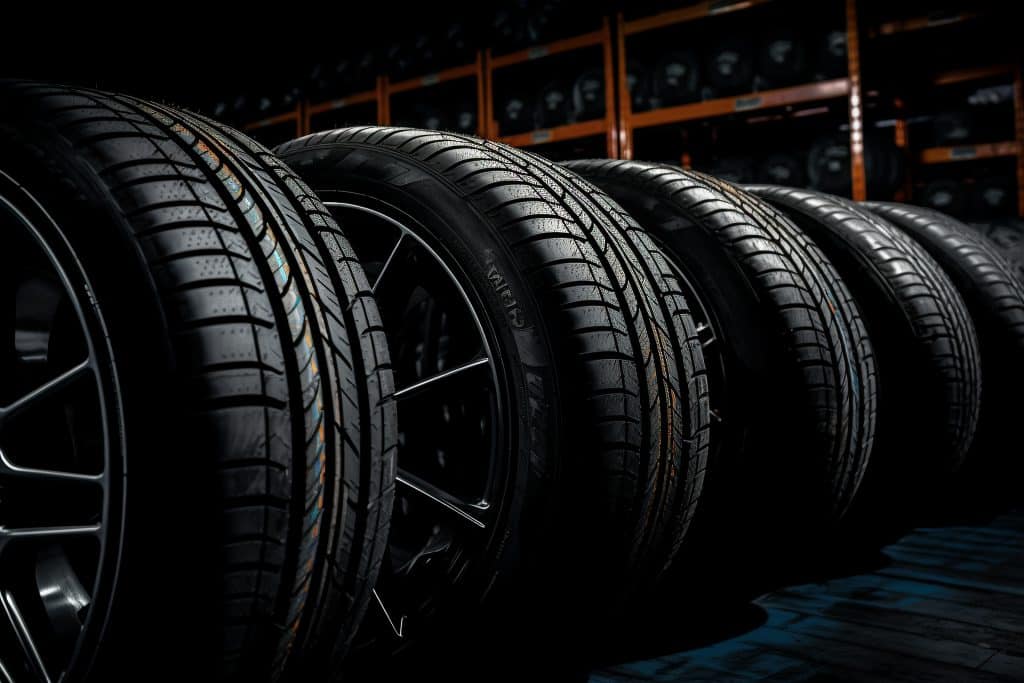Importing car tires from China presents a lucrative opportunity due to the affordable prices, variety of products, and access to many suppliers. Whether you’re importing for business or personal use, it’s crucial to understand the process from sourcing to delivery. This guide provides a step-by-step approach to help you navigate through tire markets, choose the right suppliers, and manage the shipping and customs procedures effectively.

1. Why Import Car Tires from China?
China is a global leader in tire manufacturing, offering an extensive range of products to meet the needs of all types of vehicles and industries. Here’s why importing tires from China is advantageous:
- Cost-Effective: Chinese manufacturers offer competitive pricing, allowing you to save on bulk purchases.
- Wide Selection: From budget-friendly tires to high-performance options, China offers products that cater to every market segment.
- Customization: Many suppliers allow for product customization, whether in branding, size, or specifications.
2. Key Tire Markets in China
Exploring physical markets and trade centers in China can give you a better understanding of the tire industry and help you find the best suppliers. Some of the most popular tire markets are:
- Yuyin Spare Parts Center: Located in Guangzhou, this center spans 14,000 square meters and is home to multiple suppliers offering tires from well-known Chinese and Asian brands. It’s an ideal place for finding competitive prices and a wide range of tire options.
- Li Yin Plaza: Another large market specializing in auto parts and tires, with numerous suppliers and manufacturers offering quality products at various price points.
Additionally, attending trade shows such as the Canton International Fair, Aiwu International Fair, and the Shanghai International Automobile Show provides opportunities to meet suppliers, discover new products, and negotiate better deals.
3. How to Choose the Right Supplier
When importing tires, it’s important to choose suppliers who meet your requirements in terms of quality, pricing, and shipping terms. Start by researching manufacturers and suppliers on platforms like Alibaba or attending trade shows and tire markets. Consider these points:
- Check Certifications: Ensure the supplier’s products meet international standards such as ISO, DOT, or ECE.
- Request Samples: Always request samples to evaluate tire quality before committing to a bulk order.
- Negotiate Terms: Price isn’t the only factor; discuss shipping terms, warranties, and after-sales support.

4. Choosing the Right Incoterms
Incoterms determine the responsibilities of both the buyer and the seller in the shipping process. Here are some of the most common Incoterms used when importing tires:
- EXW (Ex-Works): The supplier handles production and packaging, but you are responsible for arranging pick-up and covering all logistics costs from the factory onward.
- FOB (Free on Board): The supplier takes care of transport to the port and loading onto the ship, but you handle shipping beyond that.
- CIF (Cost, Insurance, and Freight): The supplier pays for shipping and insurance until the tires reach your port, but you handle customs and unloading.
- DDP (Delivered Duty Paid): The supplier is responsible for all costs and logistics, delivering the tires to your warehouse.
Choosing the right Incoterms depends on how much control and responsibility you want over the shipping process. Negotiating favorable shipping terms with the supplier can lead to a more cost-effective solution. learn more about trade terms.

5. Shipping Methods for Car Tires
Once you’ve chosen a supplier, selecting the right shipping method is crucial for balancing cost and delivery time. The two primary options are:
- Sea Freight: Sea freight is the most cost-effective option for large orders but takes longer to arrive. It’s ideal for bulk tire shipments.
- Air Freight: Air freight is faster but more expensive. It’s suitable for smaller or time-sensitive shipments.
Contact Tonlexing to help manage the logistics, ensuring that you get the best rates and enjoy a smooth shipping experience.
6. Customs Clearance and Documentation
Handling customs correctly is vital to avoid delays and extra charges. Here are the key documents you’ll need when importing tires:
- Commercial Invoice
- Bill of Lading (for sea freight) or Airway Bill (for air freight)
- Packing List
- Certificate of Origin
- Import Licenses (if required)
Ensure you also calculate the correct import duties based on the HS code for car tires (usually 4011.10). Consulting Tonlexing can help navigate specific requirements in your country.
7. Cost Overview and Budgeting
Understanding the full cost of importing car tires is crucial for budgeting. Here’s a breakdown of the typical costs involved:
| Item | Estimated Cost (USD) |
|---|---|
| Tire Cost (per unit) | $30 – $100 |
| Sea Freight (20ft FCL) | $1,200 – $2,000 |
| Customs Duties | 5% – 10% |
These prices vary depending on the quantity, type of tires, and shipping method you choose. Always get quotes from multiple suppliers and shipping companies to compare rates.
8. Final Steps to a Successful Import
Before making your final decision, be sure to:
- Evaluate Suppliers: Build relationships with trustworthy suppliers who offer competitive pricing and reliable shipping terms.
- Analyze Shipping Options: Choose between sea or air freight based on your urgency and budget.
- Check Regulations: Ensure your imported tires meet all local safety and environmental standards.
Importing car tires from China can be highly profitable if you carefully follow the steps outlined in this guide. By choosing reliable suppliers, negotiating favorable terms, and selecting the best shipping method, you can successfully import high-quality tires at competitive prices. Remember to stay informed about customs regulations and seek professional assistance to streamline the process.


